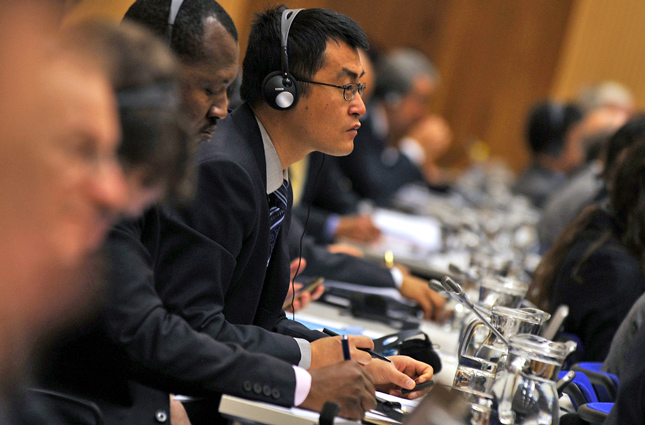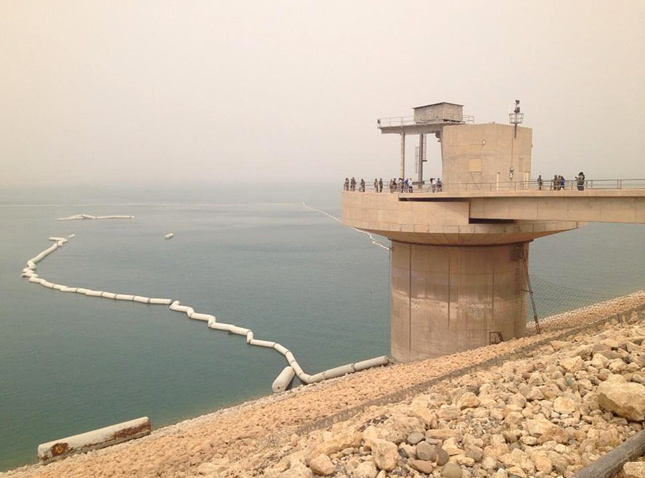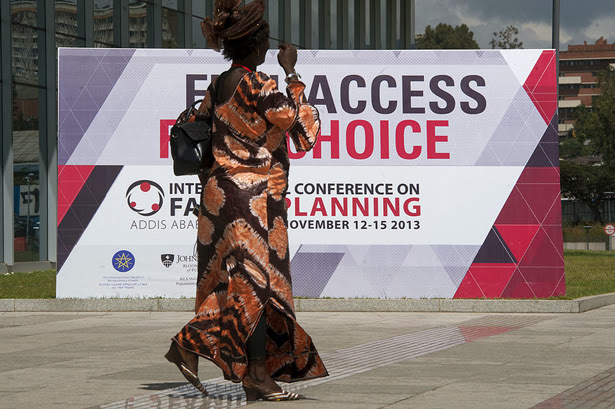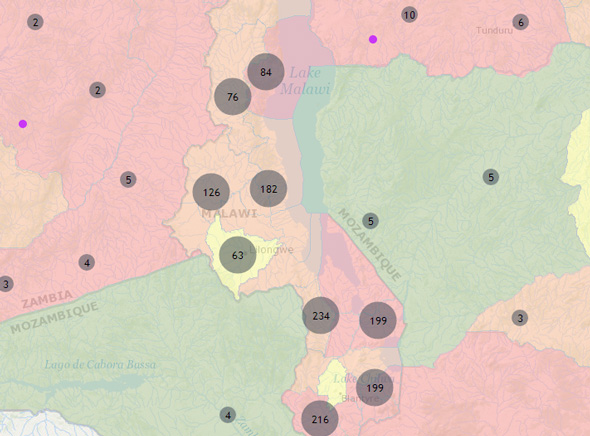-
Friday Podcasts
Eric Chu on Translating Climate Adaptation Theory to Action on the Local Level
MORE
“Adaptation is very theoretical. When you talk about ‘resilience,’ you draw these Venn diagrams and you draw these really complex issues, but at least at the IPCC level, we didn’t spend a lot of time thinking about what people were actually doing,” says Eric Chu in this week’s podcast.
-
Eye On // Guest Contributor
New Portal for Himalayan Region Aims to Provide Better Environmental Data
MORE
“There was drought so we had to share the little water brought a long distance from irrigation canals to the field. This delay in rice planting is resulting in a late harvest,” explains Ratna Darai, 47, a farmer in Daraipadhera, Nepal, during an interview with The Third Pole reporter Ramesh Bhushal. An erratic monsoon means an uncertain harvest in a nation where agricultural production is not on pace with population growth. Water insecurity is a major driver of conflict and uncertainly in the world’s most populous continent.
Topics: agriculture, Asia, biodiversity, climate change, conservation, consumption, data, development, disaster relief, energy, environment, environmental peacemaking, environmental security, Eye On, featured, Guest Contributor, India, international environmental governance, natural resources, Nepal, Pakistan, population, security, South Asia, water -
From the Wilson Center
World Population and Human Capital in the 21st Century
MORE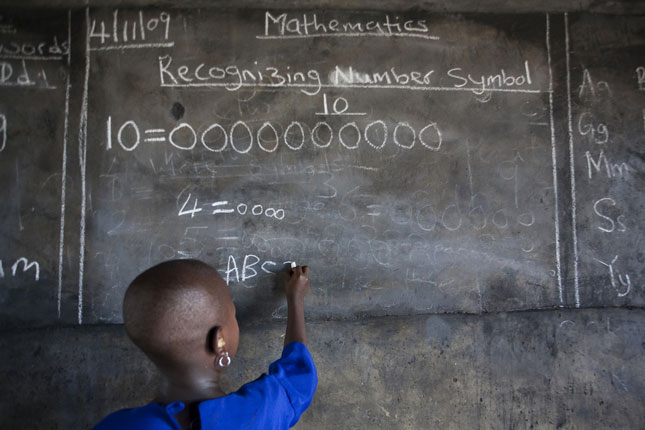
With UN demographers more certain than ever that global population will reach between 10 and 12 billion by the end of the century, the challenge of building a sustainable future seems daunting. But according to Wolfgang Lutz, founding director of the Vienna-based Wittgenstein Center for Demography and Global Human Capital, these projections miss one crucial variable: increasing levels of education. [Video Below]
-
From the Wilson Center
Silver Buckshot: Alternative Pathways Towards Greenhouse Gas Mitigation
MORE
In 1986, global nuclear weapons stockpiles peaked at nearly 70,000 warheads. By the beginning of 2013, there were just over 17,000, with only 4,400 kept operational. This dramatic reduction was the fruit of a negotiation process that began in the late 1940s. In spite of incredible tensions between the United States and the Soviet Union, negotiators were able to make progress once they focused on building trust with small, pragmatic steps, rather than starting with the complete elimination of all weapons. [Video Below]
-
Guest Contributor
What Can Iraq’s Fight Over the Mosul Dam Tell Us About Water Security?
MOREThe fight for control over “the most dangerous dam in the world” is raging.
Since its capture by Islamic State (IS) militants on August 7 and subsequent attempts by Iraqi government and Kurdish forces to take it back, Iraq’s Mosul Dam has been one of the central components of the government’s surprising and rapid collapse in the country’s northern and western provinces. In fact, one might see the capture of the Mosul Dam as the moment IS ascended from a dangerous insurgent group to an existential threat to Iraq as a state.
-
PHE Mythbusting at the International Conference on Family Planning
November 21, 2013 // By Roger-Mark De SouzaMORE
I’ve just returned from the International Conference on Family Planning (ICFP) in Ethiopia where integrated population, health, and environment (PHE) programs had a strong showing. More than 16 sessions over three days at the conference incorporated PHE themes, including panels on communicating complexity around family planning, conservation and human rights; how PHE helps accelerate the fertility transition in rural Ethiopia; and meaningful ways of linking population and family planning to climate change and sustainable development in Africa. Blue Ventures, one of PHE’s strongest voices, was given one of the first ever Excellence in Leadership for Family Planning awards. At this global meeting of family planning experts, PHE was clearly and squarely at the center.
Topics: Africa, development, environment, environmental health, Ethiopia, family planning, featured, global health, ICFP, ICFP 2013, livelihoods, Madagascar, PHE, population, poverty, video -
Environmental Security Goes Mainstream: Natural Resources and National Interests
March 29, 2013 // By Wilson Center StaffMOREThe original version of this article, by Stewart M. Patrick, appeared on the Council on Foreign Relations’ The Internationalist blog.
Not long ago, concerns about environmental degradation were marginal in U.S. national security deliberations. What a difference climate change has made. Foreign policy officials and experts are starting to recognize profound linkages between planetary health, economic prosperity, and international security. These connections were on full view last Wednesday, when the Council on Foreign Relations (CFR) teamed up with Conservation International (CI) to convene a symposium, “Global Resources, the U.S. Economy, and National Security.”
-
Eye On
CCAPS Looks to Map Climate-Related Aid in Africa
MORE
Adapting to the effects of climate change is increasingly becoming an important component of many international development efforts. But how that integration occurs and what it looks like is an open question. To help answer that, the Climate Change and African Political Stability Program (CCAPS) at the University of Texas at Austin recently released a new database that for the first time tracks all the climate-related aid in one country – Malawi.
Topics: adaptation, Africa, agriculture, climate change, development, environment, Eye On, featured, Malawi, population, World Bank
 A Publication of the Stimson Center.
A Publication of the Stimson Center.



